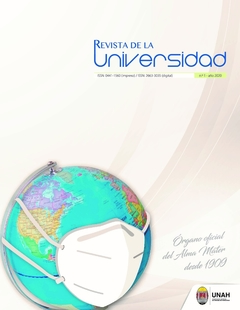Pandemias y su impacto en la humanidad
Keywords:
Pandemics, SARS Virus, History of medicineAbstract
A Pandemic is defined when an infectious disease increases its number of cases in multiple countries. During human history, a variety of pandemics have occurred. Some of the earliest known are the Plague of Athens and the Antonine Plague, that severely impacted the city of Athens and the Roman Empire, respectively. In the 6th Century the first plague caused by Yersinia pestis occurred, known as the Justinian Plague that would scourge the Roman Empire again. During the 20th century the influenza A virus produced three pandemics, and one in the 21st century, by different strains. The most severe in 1918, called the Spanish flu, happened during the World War I, and killed 50 million people.
A great diversity of infectious diseases has emerged over the last 100 years.
In 1983 the acquired immunodeficiency syndrome (AIDS) would be recognized; during 2002, in China originated the virus of severe respiratory distress syndrome (SARS); cholera is a disease that has re-emerged up to a total of seven times worldwide, the last time in 2010. During 2013 the Ebola outbreak in Africa would cause a global emergency due to danger of propagating to other continents; in 2015 zika would surprise the world by moving from Asia to the Americas; in 2019 Honduras would know the worst dengue epidemic in 50 years and currently the world is experiencing the pandemic due to coronavirus disease 2019 (COVID-19). In the history of humanity there has always been the threat of large-scale infections, so it is necessary to investigate and learn from historical events refine the effectiveness with which new ones are prevented and confronted.
483
Downloads
Published
How to Cite
Issue
Section
License
Copyright (c) 2022 Revista de la Universidad

This work is licensed under a Creative Commons Attribution-NonCommercial-ShareAlike 4.0 International License.




